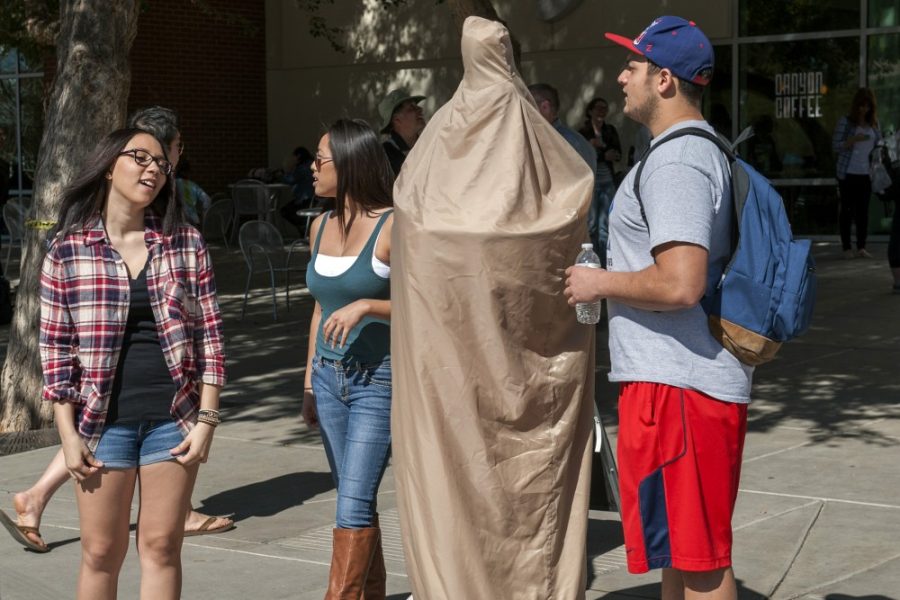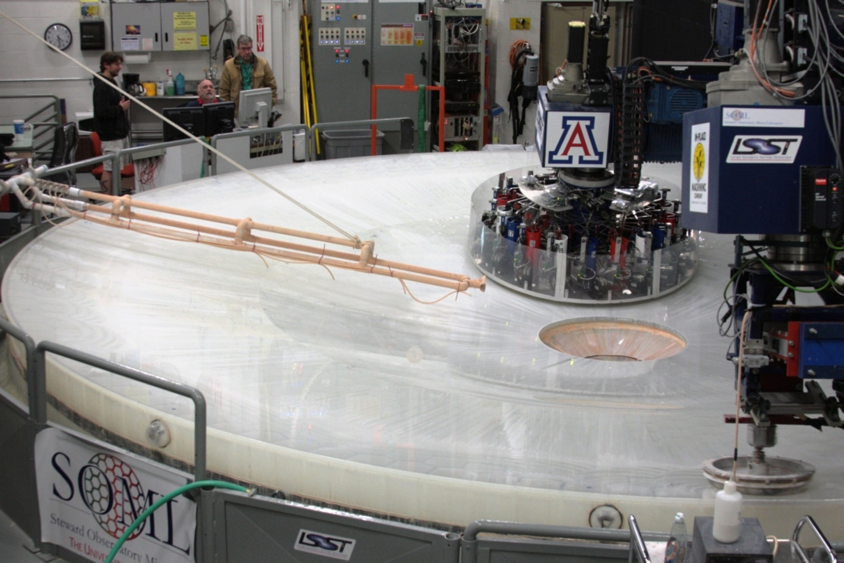Campus Health Service held the Sexual Health Resource Fair on the UA Mall on Wednesday in order to provide sexual health and safety outreach to students.
Campus Health Service and other off-campus outreach groups set up shop to hand out lube, condoms, key chains and anything else that might entice students to learn about sexual safety.
Carrie Hardesty, Health Promotion and Preventive Services health educator at Campus Health, was the coordinator of the event.
“This resource fair is really aimed to give students accurate, comprehensive knowledge about sexual health,” Hardesty said, “including different resources and different tools that might help them be safer in their sexual practices or healthy relationships [and] increase their knowledge of sexual health and risk reduction methods.”
Hardesty added that Campus Health has many resources available to students: It can prescribe birth control, insert and remove IUDs and administer Pap testing, STD testing and treatment. It also offers services through the OASIS Program Against Sexual Assault and Relationship Violence.
OASIS provides education on violence prevention and counseling for survivors of relationship violence, stalking and sexual assault.
Sara Campbell, a psychology and family studies senior, worked the OASIS booth at the fair. She played a Jeopardy!-style game with students to assess their knowledge of relationship violence.
“We are hoping to educate students about the different ways to create healthy relationships by pointing out that not everything is physical abuse,” Campbell said. “There can be signs of emotional strain in the relationship that we want to educate the students on how to prevent.”
Hardesty worked with off-campus groups, such as the Pima County Health Department, to provide students with services and information. PCHD was at the fair to provide free STD tests to students.
“Know your status, get tested,” said Miguel Soto, HIV and STD program coordinator for PCHD. “The resources are available, and a lot of them are low-cost.”
Wingspan, another off-campus organization, was at the fair to provide information on resources it provides, such as a youth lounge and an LGBTQ community center.
“I think a big part of sexual health and sexual safety is also the safety of other identities besides heterosexual,” said Patrick Farr, a partner of Wingspan’s Anti-Violence project. “I really hope to spread that and let people know that heterosexuality is not the only identity that needs to be worried about.”
Representatives from Catholic Social Service and Planned Parenthood were there to provide information on adoption, health care and pregnancy services.
The Condom Olympics took place during the fair. The event was coordinated by Bill Simmons, associate professor of gender and women’s studies, and his Sex, Health and AIDS class.
Students threw condom-encased footballs and eggs to one another across the Mall and made condom art on poster boards. Most of the more than 200 students in Simmons’ class were present at the event. Simmons said that these activities were meant to familiarize students with condoms so they won’t be uncomfortable with them in the future.
Simmons’ student Victoria Garcia, a business freshman, was at the fair to help out.
“Just use condoms,” she said. “We’ve got so many condoms, why not just use them?”









